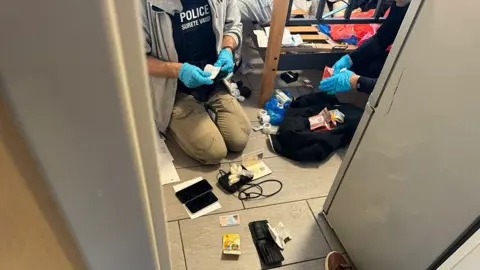Interpol’s Global Crackdown: Unmasking Black Axe’s Cybercrime Network

- Update Time : Wednesday, August 28, 2024

Police forces worldwide have united in a series of covert operations to combat one of West Africa’s most notorious criminal networks—Black Axe. From April to July 2024, Operation Jackal III led to raids across 21 countries, resulting in the arrest of 300 individuals connected to Black Axe and similar groups. The mission, coordinated by Interpol, dealt a significant blow to the Nigerian crime syndicate, yet its global influence and technological prowess remain a substantial threat.
Technological Sophistication in Cybercrime
Canadian authorities highlighted the scale of Black Axe’s operations, citing a 2017 money-laundering scheme worth over $5 billion. Interpol’s Financial Crime and Anti-Corruption Centre’s Tomonobu Kaya emphasized that these syndicates are highly organized, using advanced technology, including cryptocurrency, to facilitate their multi-million dollar scams.

The Operation and Its Implications
Operation Jackal III, which seized $3 million in illegal assets and froze over 700 bank accounts, was the culmination of years of planning. The raids, targeting Black Axe members worldwide, helped Interpol develop an extensive intelligence database shared with 196 member countries.
Challenges in Addressing the Root Cause
Experts argue that while international arrests are crucial, more efforts should be directed toward addressing the root causes of these syndicates in West Africa. Despite widespread anti-corruption protests in Nigeria, where Black Axe recruits heavily, issues like corruption and political collusion remain significant barriers.

The Role of Technology in Policing
Interpol’s introduction of the Global Rapid Intervention of Payments (I-GRIP) system marks a technological leap in combating these crimes, enabling authorities to freeze bank accounts globally with unprecedented speed. This initiative, along with continued intelligence gathering, aims to stifle the operations of Black Axe and similar syndicates.










Leave a Reply